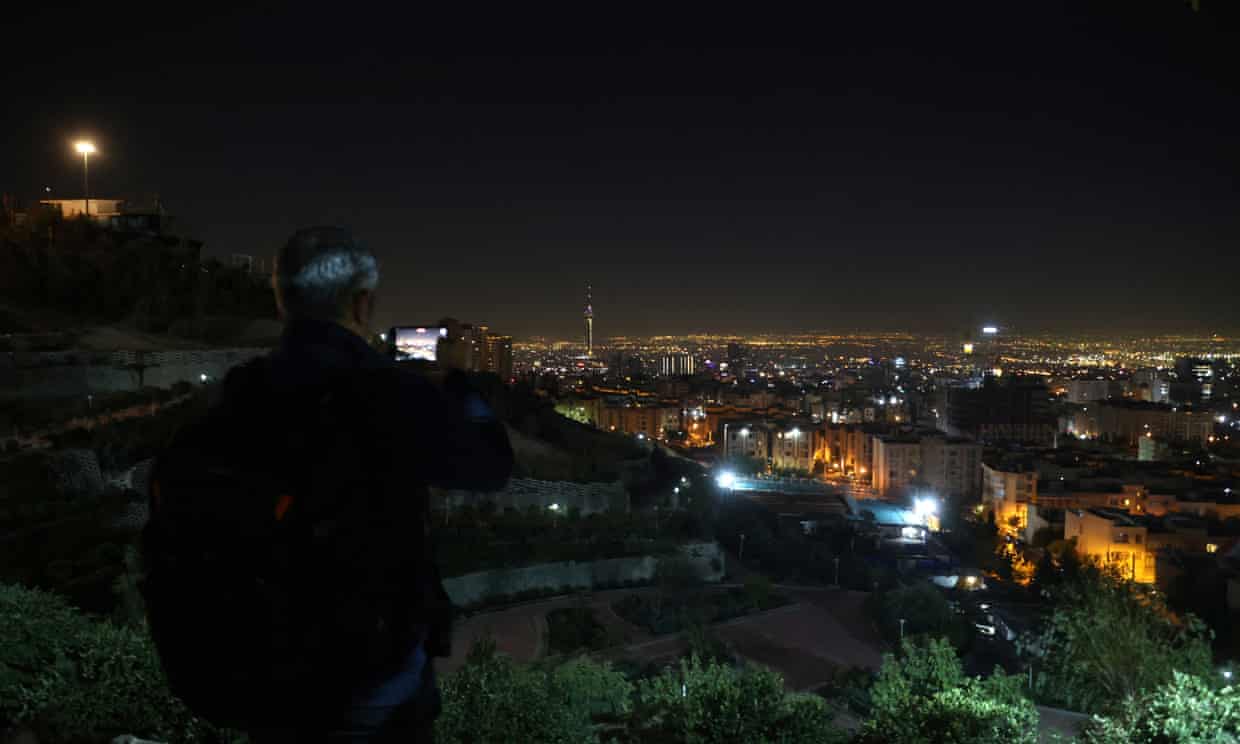Speculation, Suspense, Surprise Strategy: Reality
"It could have enough weapon-grade uranium for six weapons in one month, and after five months of producing weapon-grade uranium, it could have enough for twelve [nuclear weapons' production]."Institute for Science and International Security report"There are many many targets that can be hit without causing suffering to Iranians, because the regime is weak, and without its proxies, it's only a rather weak country because Iran doesn't have sufficient conventional military might.""Even the Americans cannot destroy the nuclear sites because they are dug inside the mountains, under the earth. The problem is not only to get there and to drop bombs, the problem is to destroy them. So I don't know how it's possible."Alex Grinberg, Iran expert, Jerusalem Institute for Security and Strategy"Although damaging or destroying export infrastructure would surely be the most direct way to limit Iran's oil revenue, it could also be impossible to avoid some form of a subsequent price spike.""Washington is doubtlessly keen to avoid a major jump in oil prices from the loss of Iranian supply, particularly so close to a hotly contested election."Colby Connelly, director, economic and energy program, Middle East Institute
 |
| Israeli Prime Minister Benjamin Netanyahu addresses the Security Cabinet following the missile attack by Iran on Oct. 1, 2024. Photo by Avi Ohayon/GPO. |
Israel,
there is little doubt, has the capability to strike deep within Iran to
target military installations, nuclear facilities, oil and gas centres,
given its advanced arsenal, which includes F-16 and F-35 fighter jets,
along with sophisticated drones. Israel had reportedly informed
Washington that for the time being strikes against the Islamic
Republic's oil and nuclear sites would not be considered; instead the
IDF planned to target Iran's military assets.
Experts
argue the most powerful conventional bombs and missiles, including
bunker busters, would potentially be incapable of destroying missile and
drone factories in Iran, since they are buried deep underground, making
targeting them a challenge of significant proportions. Iran expert Alex
Grinberg felt that targeting military leadership would "create disorganization. I don't know how they will command themselves", he mused.
It
is impossible to overlook the profound existential threat that Iran's
network of nuclear sites, buried deep within mountains, unreachable by
powerful bombs, possess a dire threat to Israel. Natanz and Fordow are
located under several dozen metres of rock, the facilities are where
Iran enriches uranium to 60 percent purity. The United States has made
it clear, however, that it would not support an Israeli strike on these
sites.
 |
| Israel’s prime minister, Benjamin Netanyahu meets security chiefs after the IDF carried out airstrikes on Iran. Photograph: Israel Mod/Zuma/Rex |
Western
democracies in general refuse to fully support Israel in its lonely war
against terrorism, despite that this is a war that threatens them all,
in time. Israel was very well aware of its forlorn status as the sole
impediment to Iran's desolating plans for regional domination, which
would in time expand outward... Iran's ballistic missile attacks on
Israel signalled significance in that no other free nation came under
such an outright challenge to its sovereignty by another nation,
anywhere.
"[Israel could conduct a] combined military operation [involving assassinating senior military officials in Iran, cyberattacks, and deploying Israeli special forces to destroy military targets.""It's not only one thing, not only one theatre. They did something very unusual [in the IDF operation in Syria]. They not only attacked the Iran missile factory in Syria [but] special troops also landed in the factory."Alex Grinberg
 |
| Explosions heard in Tehran after Israel announces precise strikes on military targets Still from video |
As
it happened, only last night Israel did make its move. The government
of Israel weighed its options while also attending to the diplomatic
aspect of its major supporter/benefactor's 'advice', and decided this
time around that by demonstrating its capabilities in a lightning strike
that would represent the largest airborne strike group in any conflict
anywhere else in the world, it would accomplish what it set out to do;
exact a penalty on the Islamic Republic of Iran's military
installations.
In
the process leaving the indelible message, on the return safely home of
all its air crew and planes, that it is capable of more, much more,
should any future occasion yet arise. Should Iran decide to respond to
this latest demonstration of Israel's capability to mount an air attack
on military installations in a move that elicited no defensive response
to a massive air attack where distance and overflights in alien
jurisdictional airspace were no issue, that potential would be
unleashed.
 |
| Explosions seen near Tehran, amid an Israeli attack on Iran, October 26, 2024 (photo credit: SOCIAL MEDIA |
Labels: Ballistic Missiles From Iran, Islamic Republic of Iran, Israeli IDF Response, Military Installations in Iran, State of Israel

<< Home